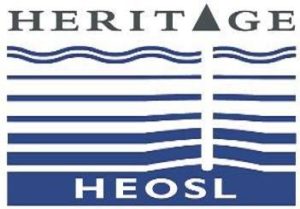SHELL SALES OF OIL BLOCKS – WHAT IS THE BENEFIT TO HOST COMMUNITIES OF NIGER DELTA?
Zik Gbemre
The Royal Dutch Shell is at it again as it has concluded the sale of its four Nigerian onshore oil blocks–Oil Mining Leases (OML) 18, 24, 25 and 29 – in addition to the Nembe Creek Trunk Line (NCTL) – which it put up for sale following a 2013 review of its business in the country. According to a report, in an effort to reduce its exposure to onshore operations, which are more prone to security threats, Shell is divesting 30 per cent of its interest in the four blocks, while Total and Eni are selling 10 per cent and five per cent respectively. The remaining Fifty-five per cent will be retained by the Nigerian National Petroleum Corporation (NNPC) under a Joint Operating Agreement (JOA) with the new buyers. The divestment is also part of the Anglo-Dutch giant’s plan to dispose of $15 billion of assets globally in 2014 and 2015.
The problem we have with all of these concluded sales by Shell in its Western-Nigeria operations and now the Eastern operations is that it has no direct benefits to, or role by the host communities that have been bearing the brunt of the extractive industry for over fifty decades now.
On the Divestment of Shell (SPDC) onshore assets in the Niger Delta region, Shell initiated this process which according to them, was to help grow local capability. Oil blocks in Shell’s Western operations in Nigeria were sold to mostly Nigerian companies who were in partnerships with foreign funding and technical partners. But neither the host Delta State Government nor local communities were considered in these as partners, and this generated a lot of community backlash with threats from local communities to block operations. There were protests in the oil city of Warri and other places but all to no avail. Now the same thing has happened in the East; in Bayelsa and Rivers States. Again, there are no indication of direct role for, or benefits to the host communities that have borne the brunt of the devastation and exploitation for all these years of oil and gas exploration and production.
Plans are on for OML 11 & 17, some of the wells are in Ogoni, which has witnessed the most destructive evidence of environmental pollution from oil and gas exploration and production that are yet to be resolved till today. The question is, should the Nigerian government just allow these sales to go on without prescribing equity participation for the communities as a way of compensating them? Buyers of these fields become extremely wealthy. Is there anything wrong with the host communities of the Niger Delta being extremely wealthy as well? The sale of these four assets will bring the number of oil blocks sold by Shell to 12 in the last four years, as the oil major had previously sold OMLs 4, 38, 41, 26, 30, 34, 40 and 42 to local investors and their international partners. Of the eight oil fields previously divested by Shell, only OMLs 4, 38 and 41 are operated by the new buyer, Seplat Petroleum Development Company, while the operatorship of the other five blocks were transferred to the Nigerian Petroleum Development Company (NPDC), the upstream subsidiary of the Nigerian National Petroleum Corporation (NNPC).
Under the current divestment programme, the report noted that Shell signed a Share Purchase Agreement (SPA) with the Aiteo Group, which is acquiring OML 29, the most prolific of the oil assets offered to buyers, and the Nembe pipeline recently in Lagos, Nigeria. Other partners in the Aiteo Group-led consortium include Tempo Energy Resources, which has a 10 per cent stake and Taleveras with five per cent equity in the consortium.
The disposal of the Nembe pipeline, which moves oil through the Niger Delta to the Atlantic coast, is seen as Shell’s biggest move yet to exit onshore crude production in Nigeria. The 60-mile Nembe Creek Trunk Line is one of Shell’s two key pipelines in the Eastern Niger Delta, which the oil giant replaced in 2010 at a cost of $1.1 billion. The company also said recently that alongside its partners, Total and Eni, it had signed an SPA to sell 45 per cent in OML 18 to a consortium led by Canadian oil and gas company Mart Resources. Reuters reported that Mart Resources confirmed that it had entered into an agreement recently for the acquisition of OML 18, whose production it said ranged between 20,000 to 30,000 barrels per day from around 30 wells. Mart Resources is part of the Erotron consortium that won the bid for OML 18. Its other partners include indigenous operator Midwestern Oil and Gas and Suntrust Oil. The sale process “has not yet fully concluded but we can confirm that we have now signed the share purchase agreements for these oil mining leases and the NCTL,” a Shell spokesman said.
“Nigeria remains an important part of Shell’s portfolio, where we will continue to have a significant onshore presence in oil and gas, and which has clear growth potential, particularly in deep-water and onshore gas,” he added. For OML 18, the Erotron consortium was reported to have offered $1.2 billion for the oil block; Aiteo offered $2.562 billion for OML 29 and the Nembe pipeline; Pan Ocean Corporation Nigeria Limited offered to pay $900 million for OML 24; while Crestar secured OML 25 having offered $500 million for the oil asset. However, despite the execution of the SPAs between Shell and the buyers, the transactions would only be deemed truly sealed after a ministerial consent is granted by the Minister of Petroleum Resources, Mrs. Diezani Alison-Madueke, as provided by the Petroleum Act. However, the buyers have expressed confidence that the Minister would sign off on the deals soon.
Again, looking at all of these oil block sales by Royal Dutch Shell in the Niger Delta of Nigeria, the big question is; in what way would these benefit the host communities that have been bearing the brunt of the extractive industry?
We were irked recently when a report by Rachel D’Oro of the Associated Press titled “SHELL, ALASKA NATIVES TO SHARE IN OFFSHORE DRILLING PROFITS, noted how a worthy Shell initiative in Alaska positively engages host community locals as ‘partners’ to share directly in the oil and gas bounty of their coast. An extract from the said report reads: “An Alaska Native regional corporation and six Native Village corporations signed an agreement with a Shell Oil subsidiary Thursday (7/31) that aims to share the profits from offshore drilling off Alaska’s northwest coast. Shell and the Arctic Slope Regional Corp. announced the formation of a new company called Arctic Inupiat Offshore LLC. Its participants include six village corporations on the North Slope. The agreement with the Shell subsidiary, Shell Gulf of Mexico Inc., gives the Alaska Native company the option of acquiring an overriding royalty interest from Shell’s drilling on leases in the Chukchi Sea.” And according to the Shell Alaska Vice President Pete Slaiby. He said the agreement also underscores Shell’s commitment to provide opportunities for the communities.
The report also noted that “Shell’s decision to invest in the future of the region and its people should be applauded,” Murkowski said in a statement. “This announcement ensures that the people of the North Slope Borough share directly in the oil and gas bounty off their coast. It also gives locals a say in what happens near their communities.”
We could not but wonder why Shell would do what they are doing in Alaska but fail to do same in other countries and places like the Niger Delta region in Nigeria?
The UNEP report funded by Shell was issued just over 3 years ago, and in the report both Shell and the Federal Government of Nigeria were indicted and specific actions aimed at remediating the severe environmental damages were assigned to all parties. The Federal Government of Nigeria has done nothing to address the issues and the communities impacted continue to suffer. Shell as the global operator that claims “best operating practices” is also not doing anything to get the government to respond.
This attitude would never be exhibited by Shell if it were in the US or Europe. The Macondo case of BP in the Gulf of Mexico, and the way the US government dealt with them is clear. BP was severely punished and the affected communities very well compensated for loss of business. Because the Nigerian government is weak and has no interest in what happens to the Ogoni communities for instance, Shell seems to have taken advantage of this by doing nothing, in violation of global standards. Shell knows they cannot do this in countries with better and stricter regulatory governance. But still, that does not excuse Royal Dutch Shell from not doing the right thing.
Zik Gbemre,
National Coordinator



